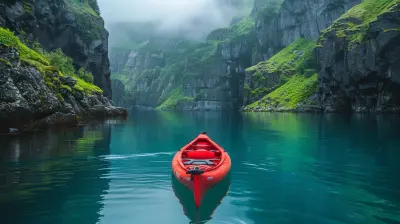Eco-Tours That Educate: Learn About Conservation While Exploring
24 August 2025
Have you ever wanted to see breathtaking landscapes, immerse yourself in nature, and actually make a difference while doing it? That’s where eco-tours come in. They’re not just about sightseeing; they’re about experiencing the world in a responsible way and learning about conservation firsthand. Whether you’re trekking through lush rainforests, diving into coral reefs, or observing wildlife in its natural habitat, eco-tours provide an opportunity to connect with nature while supporting efforts to protect it.
Let’s take a deep dive into the world of eco-tours that educate, giving you travel experiences that are as enriching as they are exciting.
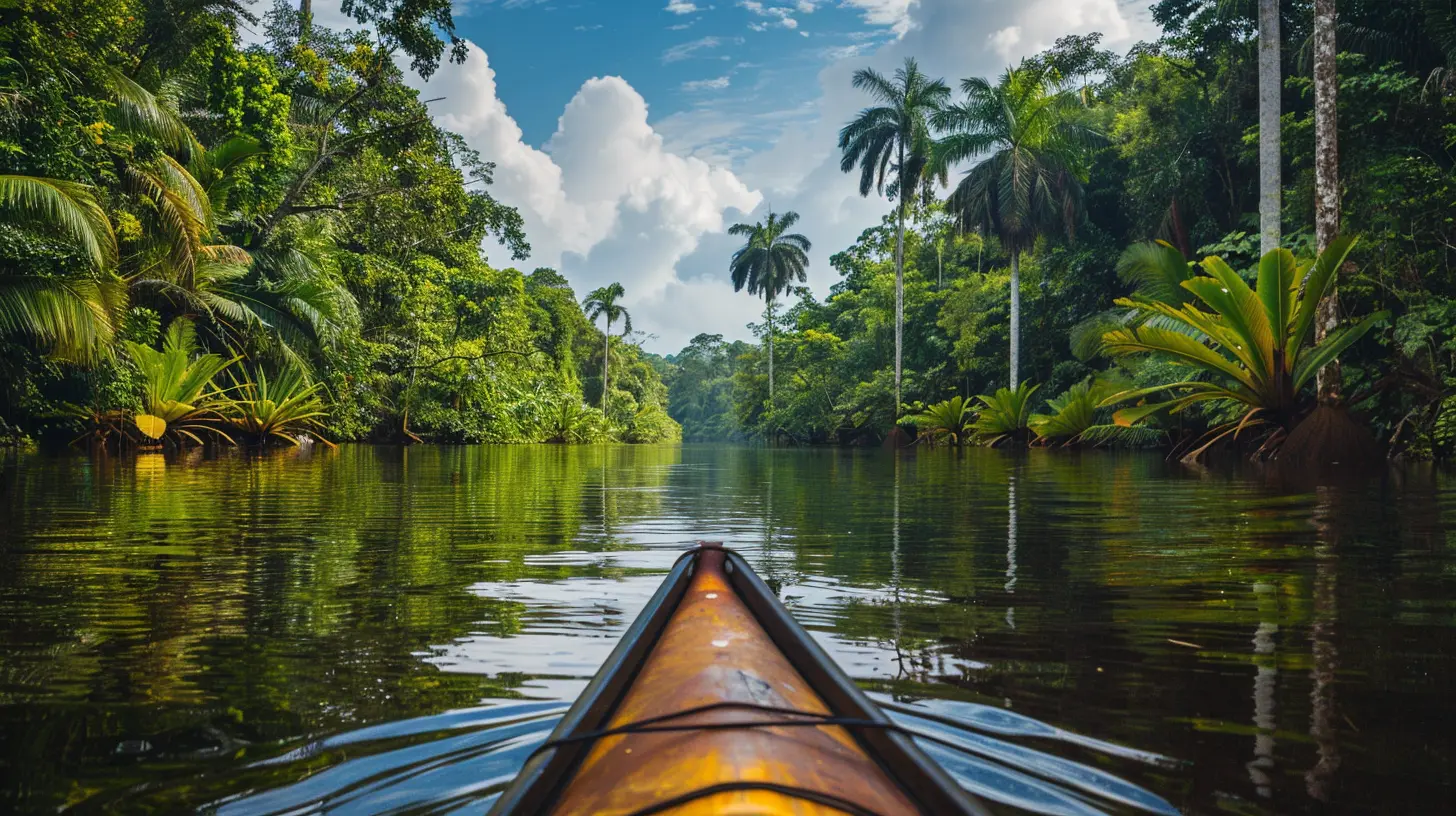
What Are Eco-Tours?
Eco-tours, also known as ecotourism experiences, focus on responsible travel to natural areas with an emphasis on conservation and education. Unlike traditional tourism, which can sometimes harm the environment, eco-tours promote sustainability, respect for local cultures, and a commitment to preserving the beauty of our planet.These tours are designed to minimize negative impacts while maximizing positive contributions—both for the environment and local communities. They often involve wildlife encounters, environmental education, and activities like reforestation, marine conservation, and cultural exchange.
Why Choose an Eco-Tour?
Still on the fence about whether an eco-tour is the right fit for you? Here’s why they’re worth considering:- You contribute to conservation efforts – Many eco-tours directly fund conservation programs or provide hands-on experiences like planting trees or tracking endangered species.
- You minimize your environmental footprint – Responsible tour companies ensure that your trip doesn’t harm the environment, using eco-friendly lodging, transportation, and ethical wildlife practices.
- You gain a deeper understanding of nature – Instead of just walking through a forest or diving into an ocean, you actually learn about the delicate ecosystems and what’s being done to protect them.
- You support local communities – Many eco-tours work with indigenous and local communities, ensuring that tourism benefits them rather than exploiting their resources.
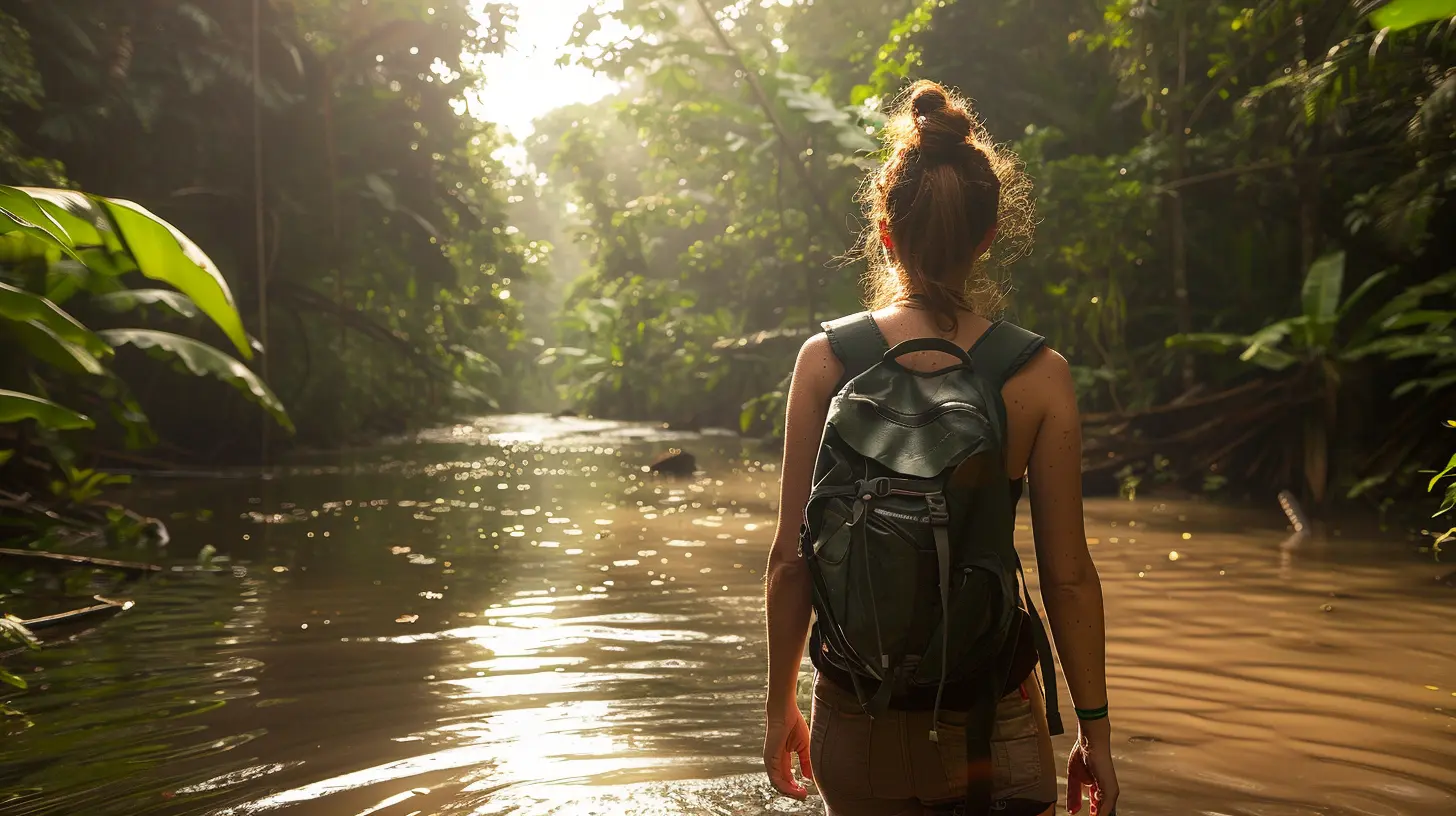
Top Eco-Tours That Educate and Inspire
Now that we know why eco-tours are worth considering, let’s explore some incredible experiences that let you travel responsibly while learning about conservation.1. Rainforest Conservation in Costa Rica
Costa Rica is a paradise for nature lovers, and its eco-tours are among the best in the world. Offering everything from guided hikes to volunteer opportunities, these tours allow travelers to learn about rainforest ecosystems while actively contributing to their preservation.What You’ll Learn:
- How rainforests play a crucial role in climate regulation
- The importance of biodiversity and protecting endangered species
- Sustainable practices to prevent deforestation
Activities Include:
- Planting native trees to combat deforestation
- Observing rare wildlife like sloths, monkeys, and toucans
- Learning from local conservationists about reforestation and habitat restoration
2. Coral Reef Protection in Australia’s Great Barrier Reef
The Great Barrier Reef is one of the world’s most stunning natural wonders, but it’s under serious threat from climate change and pollution. Eco-tours in this region focus on educating visitors about marine conservation while allowing them to experience its beauty responsibly.What You’ll Learn:
- How coral reefs support marine biodiversity
- The impact of climate change on coral bleaching
- Ways to reduce ocean pollution and protect marine life
Activities Include:
- Snorkeling or diving with marine biologists to study coral health
- Participating in citizen science programs to collect data on reef conditions
- Learning about sustainable seafood practices and how they impact ocean ecosystems
3. African Wildlife Conservation Safaris
If you’ve ever dreamed of seeing elephants, lions, or rhinos in their natural habitat, an African eco-safari is the perfect adventure. But these tours go beyond just spotting animals—they educate travelers on wildlife conservation and anti-poaching efforts.What You’ll Learn:
- The importance of wildlife conservation in Africa
- How poaching and habitat loss threaten endangered species
- The role of ecotourism in protecting wildlife and supporting local economies
Activities Include:
- Visiting wildlife rehabilitation centers that care for injured or orphaned animals
- Tracking animals with conservationists and learning about their behavior
- Engaging with anti-poaching initiatives that aim to protect endangered species
4. Arctic Expeditions to Study Climate Change
For those seeking a once-in-a-lifetime adventure, Arctic eco-tours provide an unparalleled opportunity to witness the effects of climate change in real-time. These tours often involve interactions with scientists studying the region's rapidly changing environment.What You’ll Learn:
- How climate change is accelerating ice melt and affecting global weather patterns
- The impact of rising temperatures on polar wildlife like polar bears and seals
- The role of carbon footprints in global warming and practical ways to reduce them
Activities Include:
- Exploring glaciers, fjords, and icy landscapes while learning about their ecological importance
- Observing Arctic wildlife and understanding conservation efforts to protect them
- Participating in citizen science projects to monitor climate change impacts
5. Amazon Rainforest Indigenous-Led Conservation Tours
The Amazon Rainforest is often referred to as the "lungs of the Earth," and indigenous communities have been its stewards for centuries. Many eco-tours in the Amazon are guided by indigenous people who share their knowledge of the land, flora, and fauna.What You’ll Learn:
- How indigenous communities sustainably manage the rainforest
- The medicinal properties of Amazonian plants and their traditional uses
- The threats faced by the Amazon and efforts to combat deforestation
Activities Include:
- Canoeing along the Amazon River to spot rare wildlife
- Learning about sustainable agricultural practices used by indigenous farmers
- Participating in traditional ceremonies that highlight the deep connection between indigenous cultures and nature
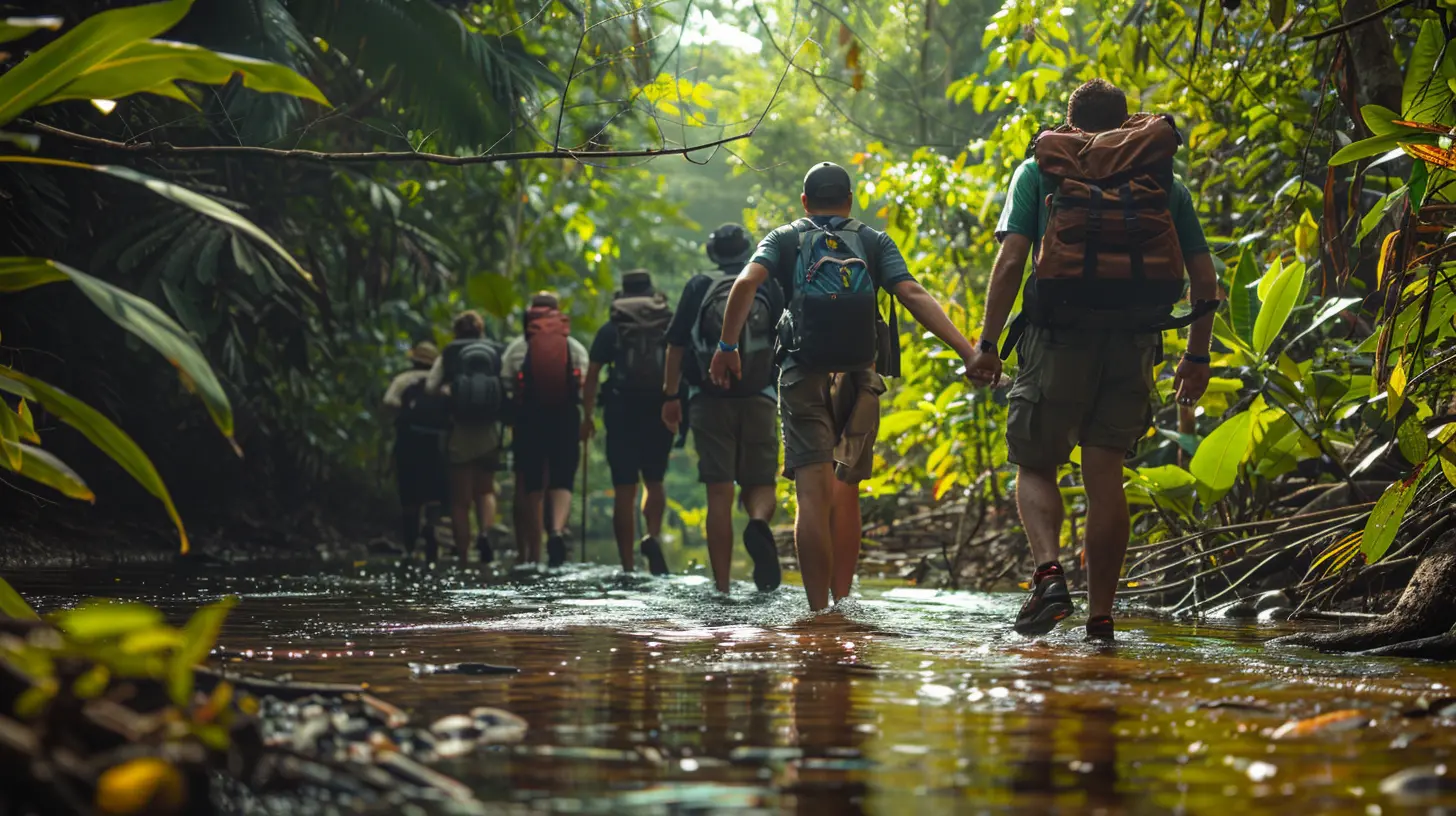
How to Choose a Responsible Eco-Tour
Not all eco-tours are created equal. Some companies market themselves as "eco-friendly" but don’t actually follow through on their promises. To ensure you're choosing a responsible provider, here are a few things to look for:- Transparency – Reputable eco-tours clearly state how they contribute to conservation and minimize environmental impact.
- Local Involvement – The best eco-tours work with and benefit local communities rather than exploiting them.
- Sustainable Practices – Look for tours that use eco-friendly accommodations, transportation, and ethical wildlife experiences.
- Educational Focus – A real eco-tour doesn’t just take you to beautiful places—it teaches you about them, too.
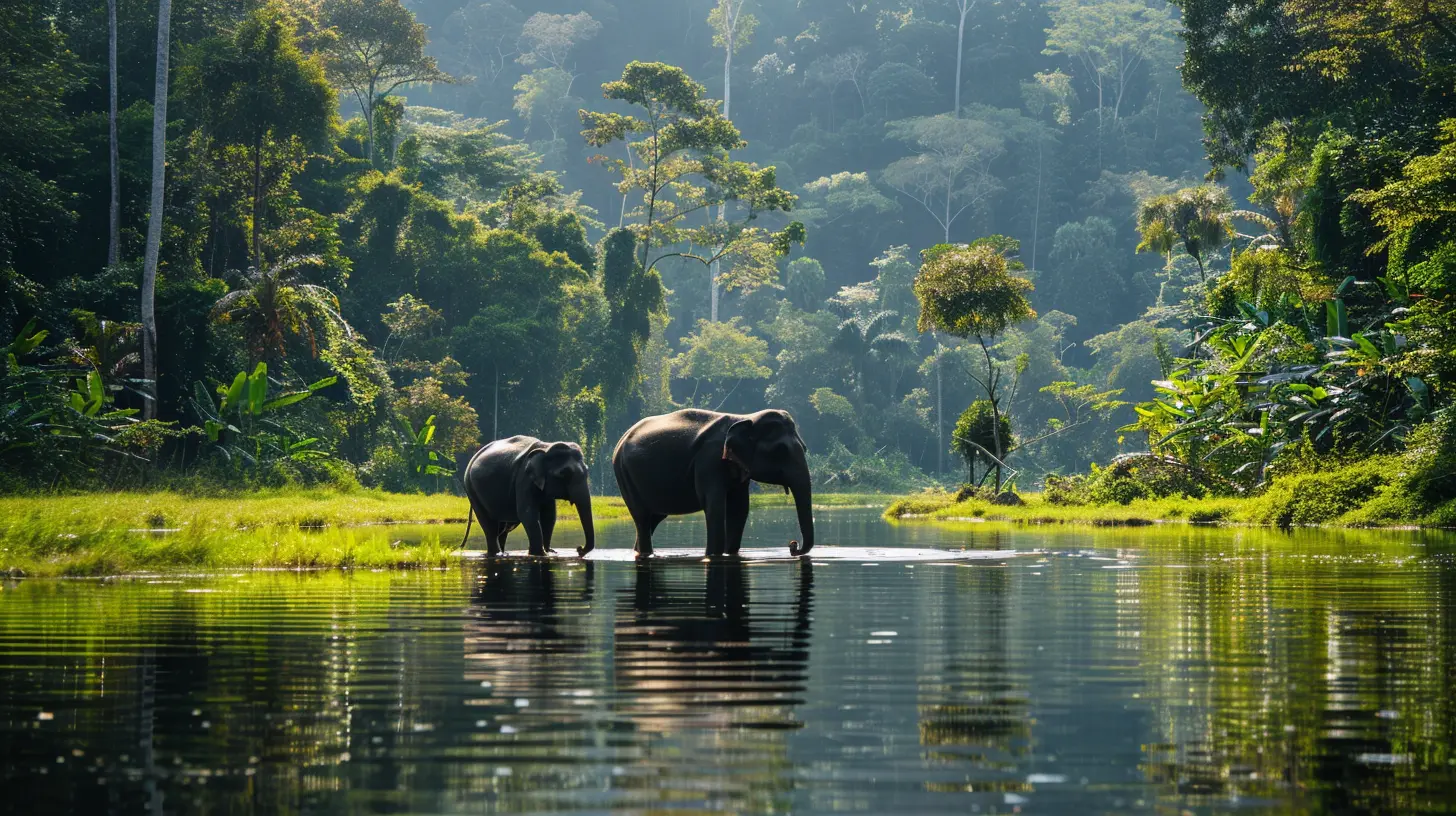
Tips for Being a Responsible Eco-Tourist
Even if you're on an eco-tour, your actions as a traveler still matter. Here are some simple ways to minimize your impact and maximize your contribution:- Respect wildlife – Never disturb animals for a photo or feed them.
- Reduce plastic use – Bring a reusable water bottle and avoid single-use plastics.
- Support ethical souvenirs – Buy handmade goods from local artisans instead of mass-produced souvenirs.
- Leave no trace – Follow the “leave no trace” principles by disposing of waste properly and respecting nature.
Final Thoughts
Eco-tours are more than just vacations—they’re powerful learning experiences that connect you with nature, conservation, and communities in a meaningful way. Whether you’re planting trees in the rainforest, diving with marine biologists, or observing wildlife in Africa, eco-tourism makes travel more impactful and responsible.So next time you’re planning a trip, why not choose one that leaves the world a little better than you found it?
all images in this post were generated using AI tools
Category:
Sustainable TourismAuthor:

Reed McFadden
Discussion
rate this article
1 comments
Sebastian Ramos
This article beautifully highlights the importance of eco-tours in promoting conservation awareness. Exploring nature while learning about environmental issues not only enriches our travel experience but also empowers us to protect our planet. A must-read for anyone passionate about sustainable tourism and responsible travel!
August 31, 2025 at 4:23 AM

Reed McFadden
Thank you for your thoughtful comment! I'm glad you found the article inspiring and aligned with the values of sustainable tourism. Your support for eco-tours is greatly appreciated!
